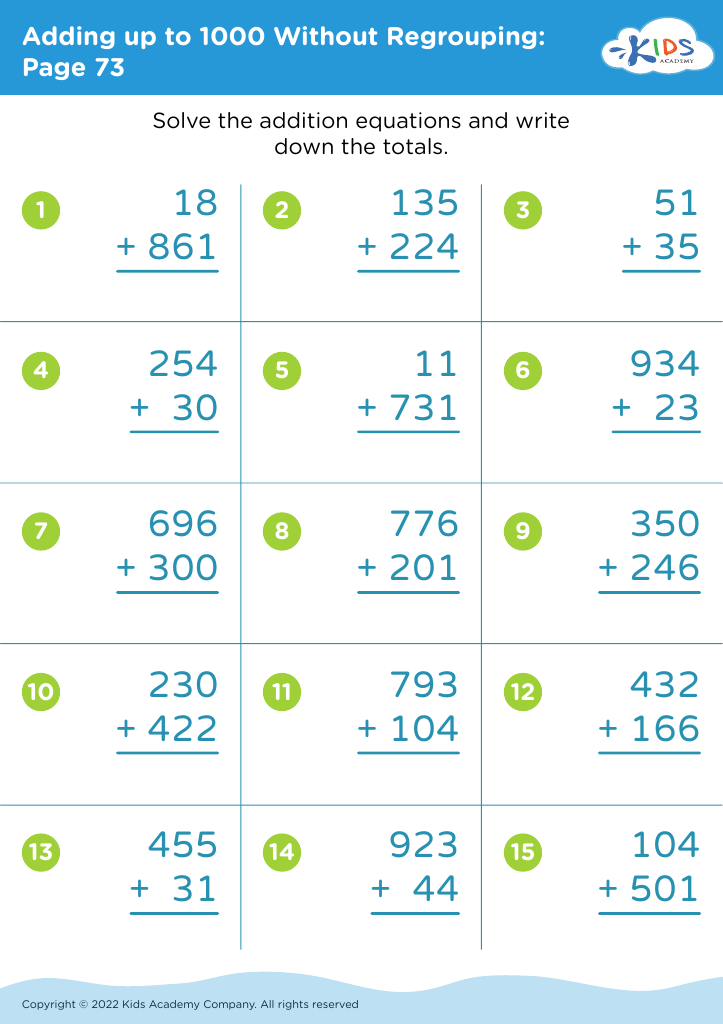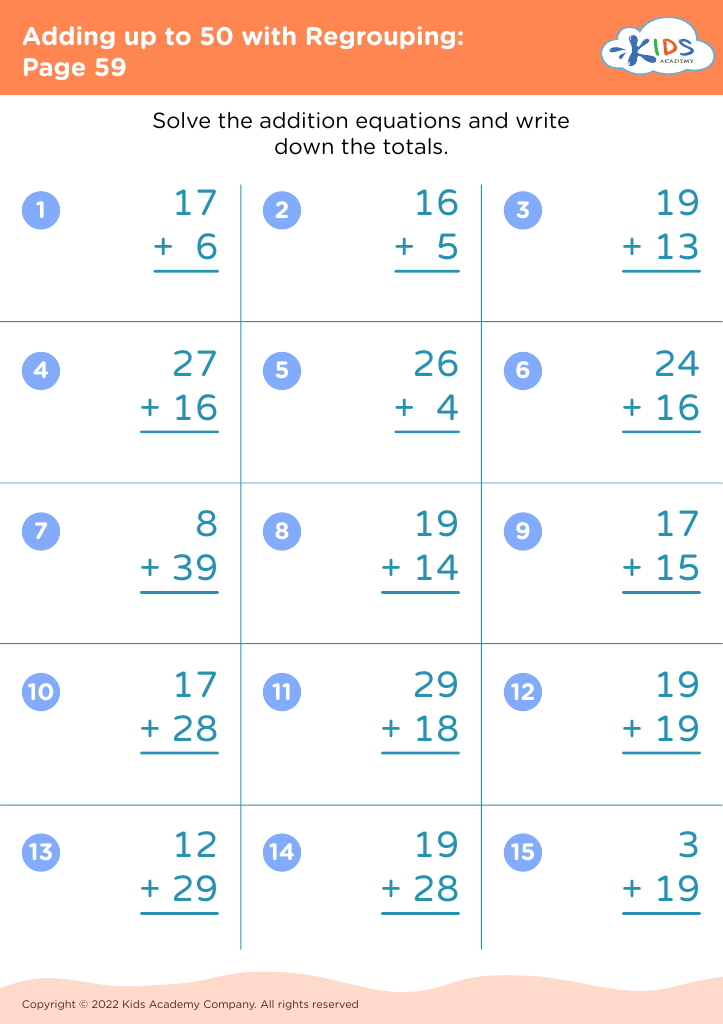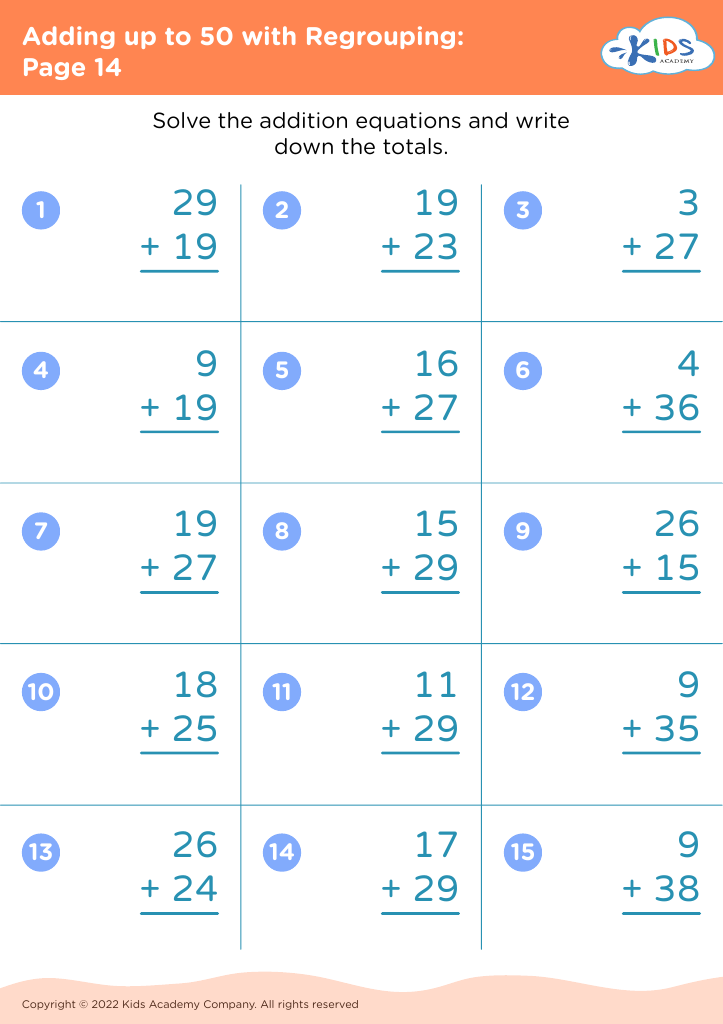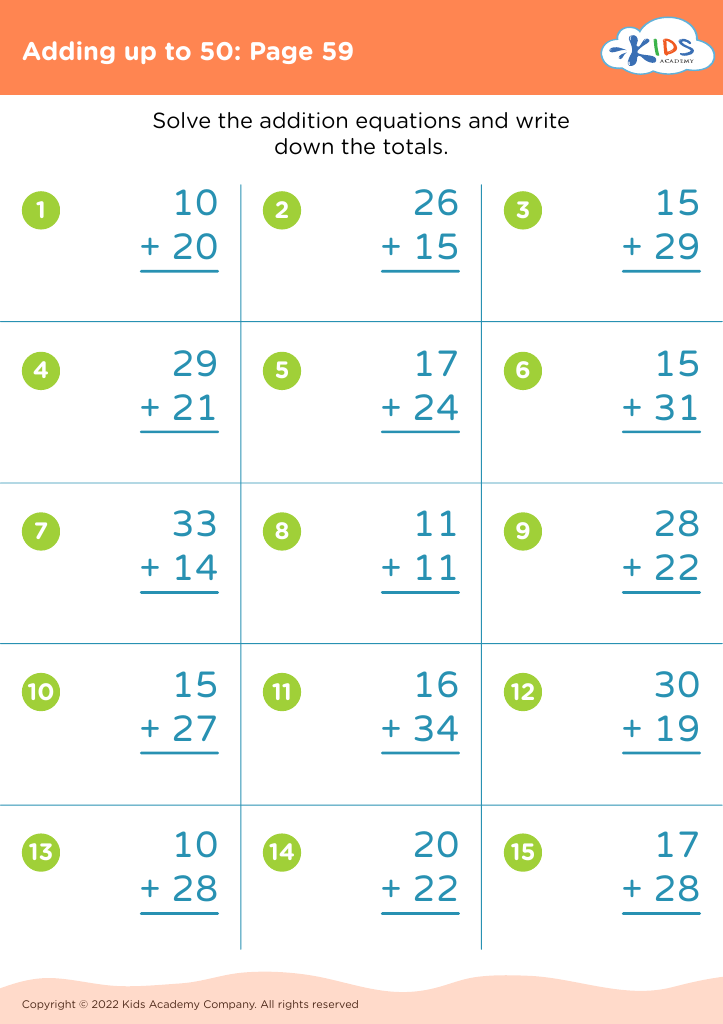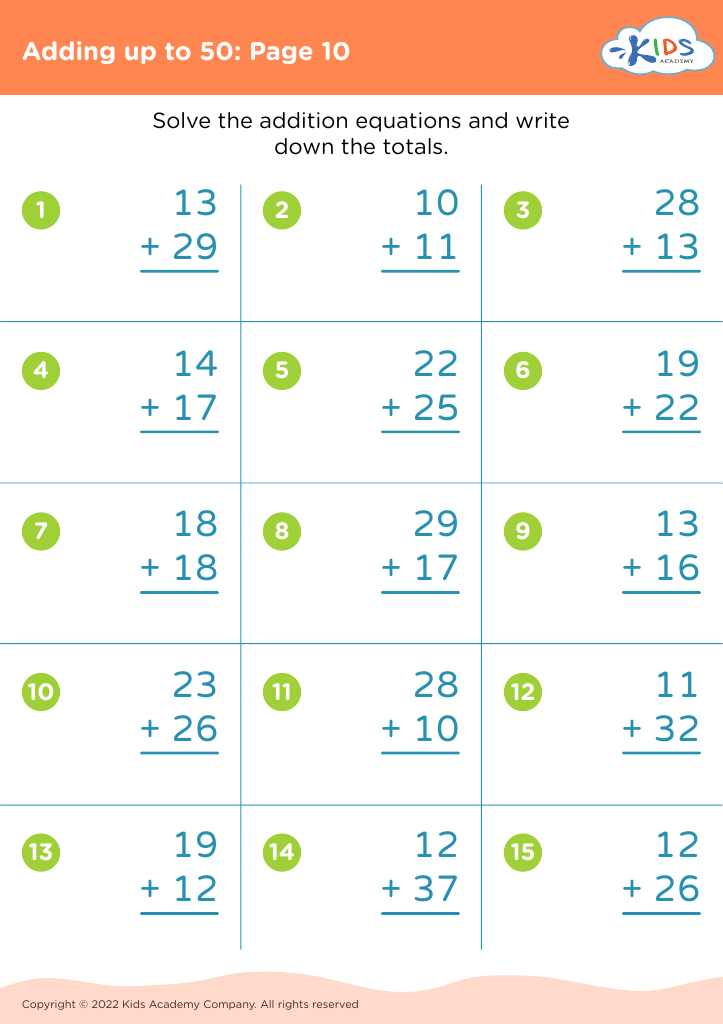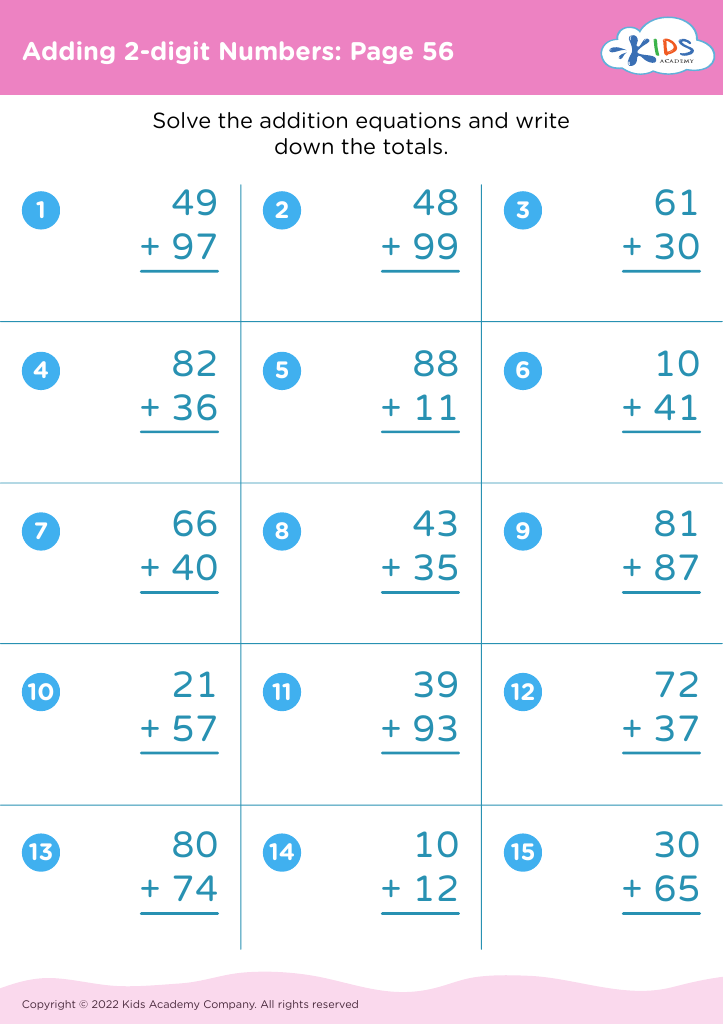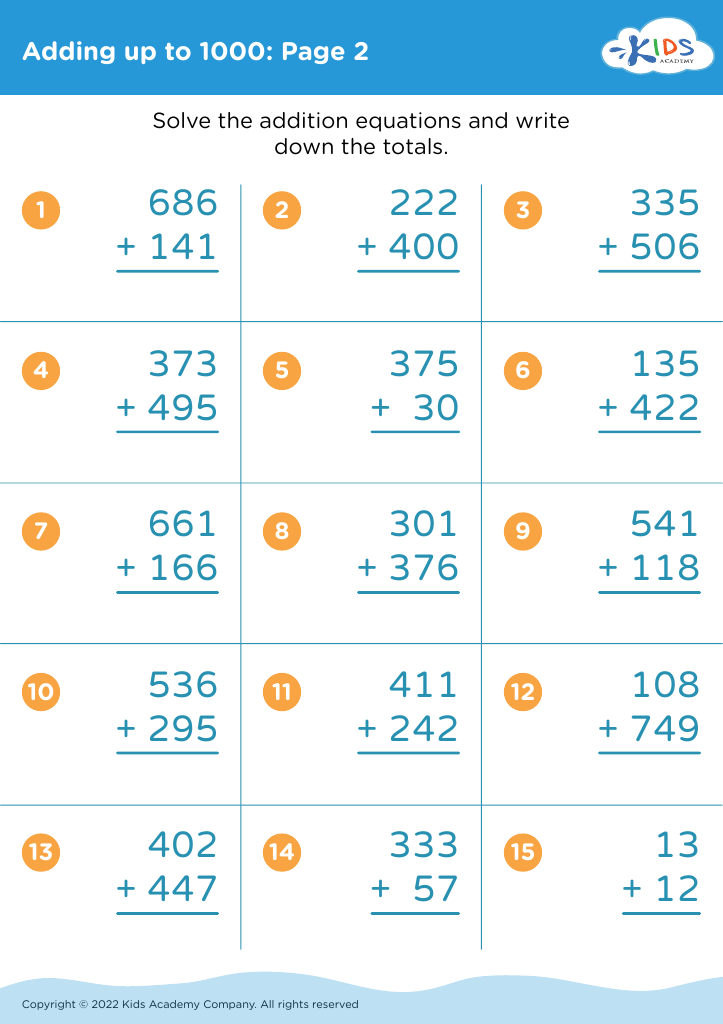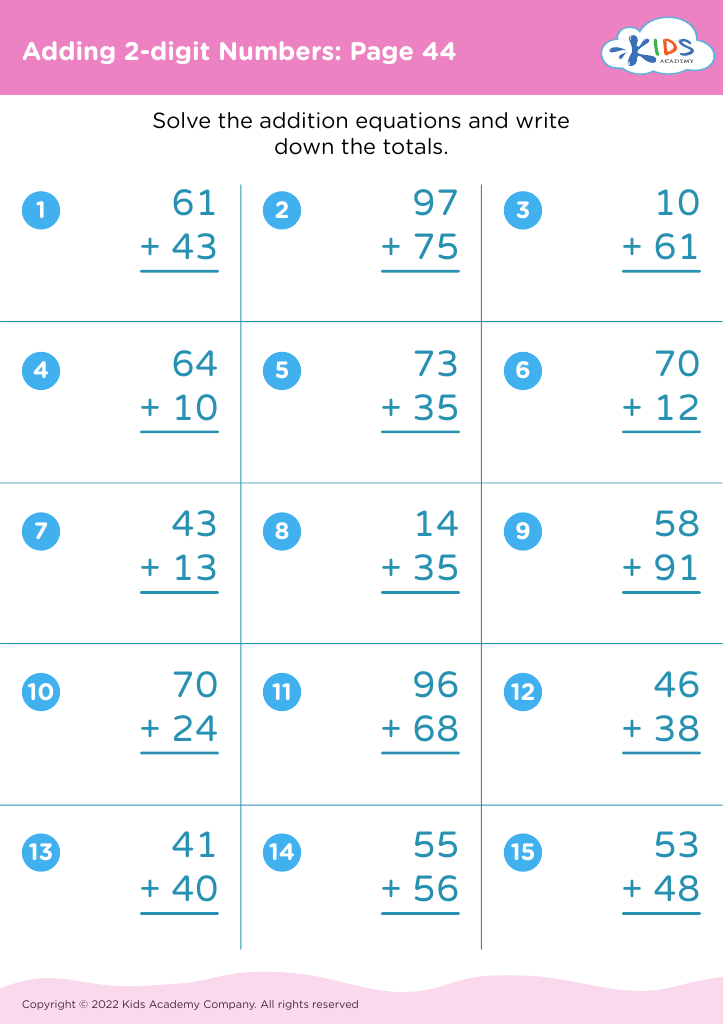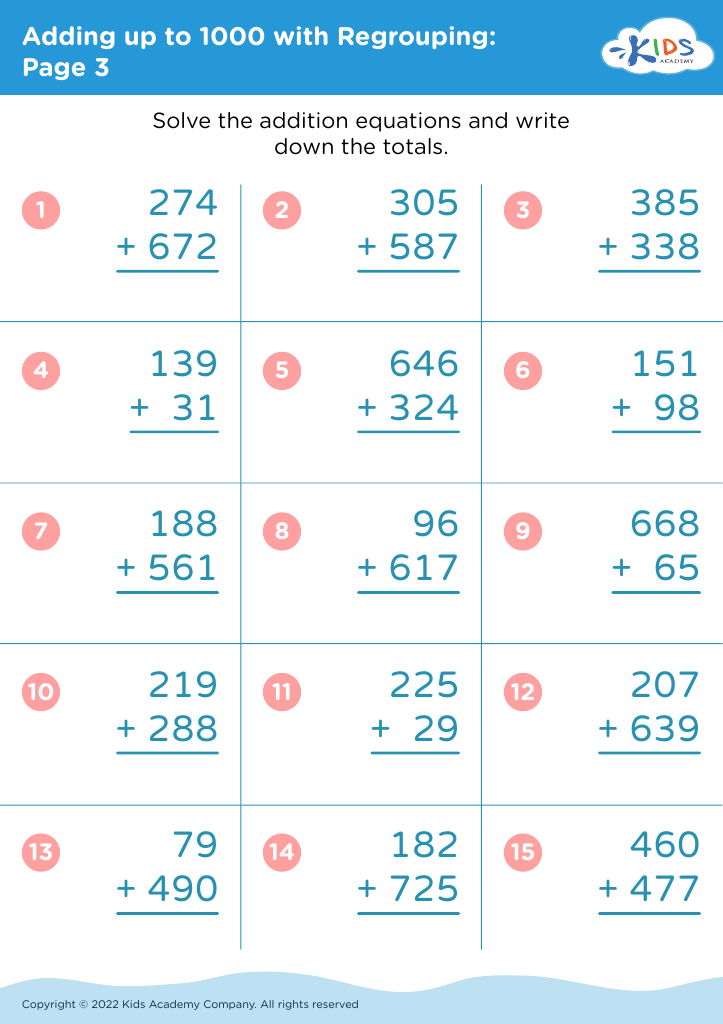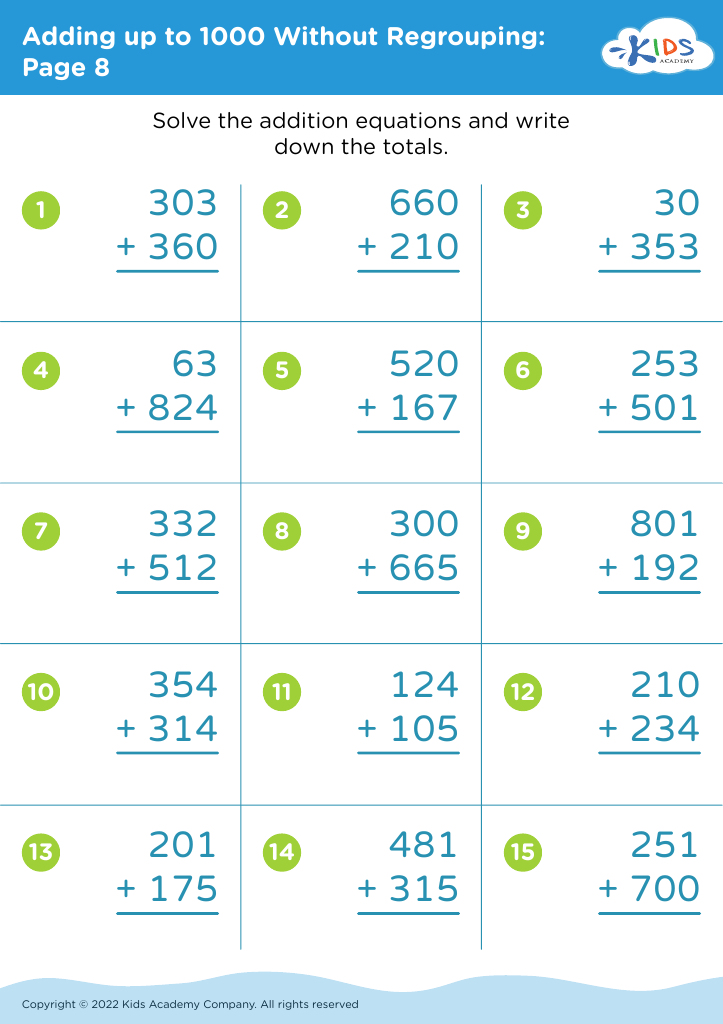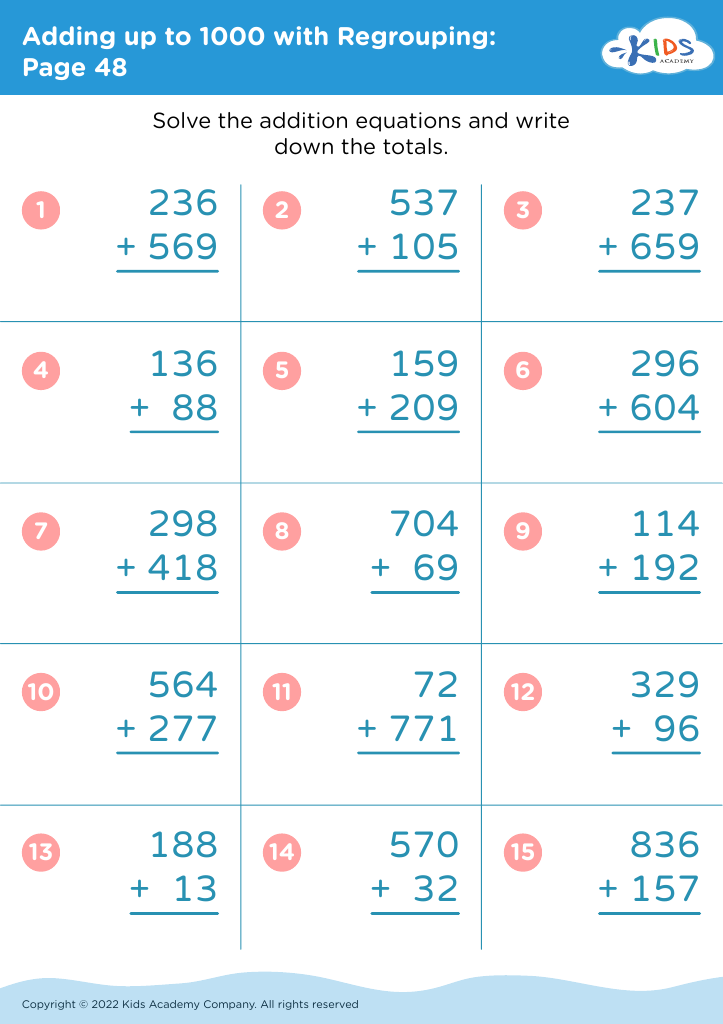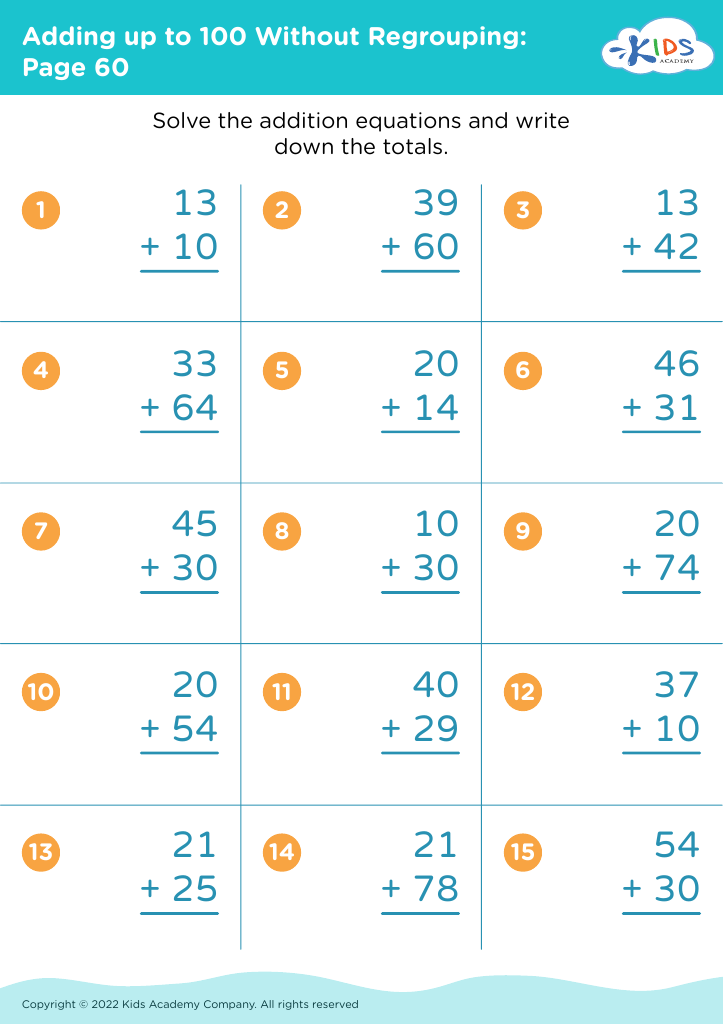Enhance comprehension Addition & Subtraction Worksheets for Ages 4-9
17 filtered results
-
From - To
Welcome to our "Enhance Comprehension: Addition & Subtraction Worksheets" designed for children ages 4-9! These engaging worksheets are specifically crafted to improve mathematical understanding and foster critical thinking skills among young learners. Our resources provide a variety of interactive exercises that stimulate comprehension through visual aids, relatable scenarios, and step-by-step problem-solving strategies. Whether at home or in the classroom, these worksheets encourage students to connect mathematical concepts with real-world applications. Ideal for reinforcing foundational math skills, our Addition and Subtraction worksheets ensure children develop confidence and a genuine love for learning. Explore our comprehensive resources and boost your child's math proficiency today!
Enhancing comprehension in addition and subtraction for children ages 4-9 is crucial for several reasons. At this age, children are developing foundational math skills that will impact their future academic success and everyday problem-solving abilities. A strong grasp of basic arithmetic concepts is essential for their cognitive growth and overall confidence in math.
When parents or teachers focus on improving comprehension rather than rote memorization, children develop a deeper understanding of the processes involved in addition and subtraction. This comprehension allows them to explain their thinking, solve complex problems, and apply their skills in real-world situations, leading to better critical thinking skills.
Furthermore, early intervention can help identify and address any learning gaps, preventing them from widening as children advance through their education. Engaging educational activities, such as games and hands-on learning, foster a love for math, making the subject less intimidating.
Moreover, positive experiences with math can build children's confidence and encourage a growth mindset. As they experience success, they develop resilience and a willingness to tackle challenges. In summary, prioritizing comprehension in addition and subtraction in young learners lays the groundwork for lifelong mathematical understanding and enjoyment.
